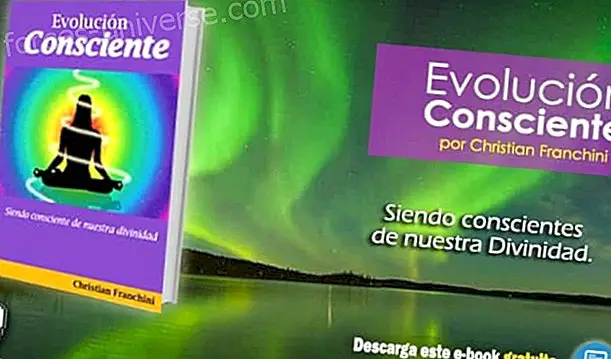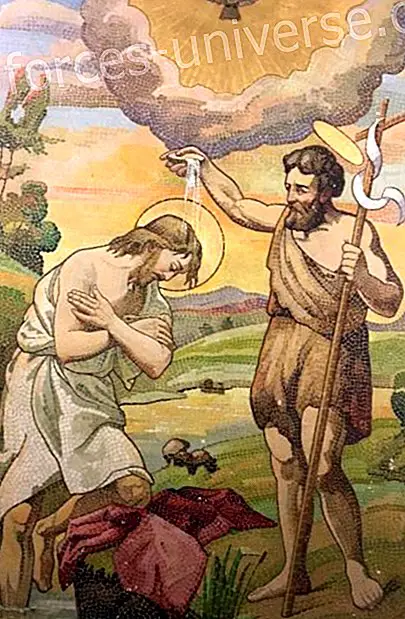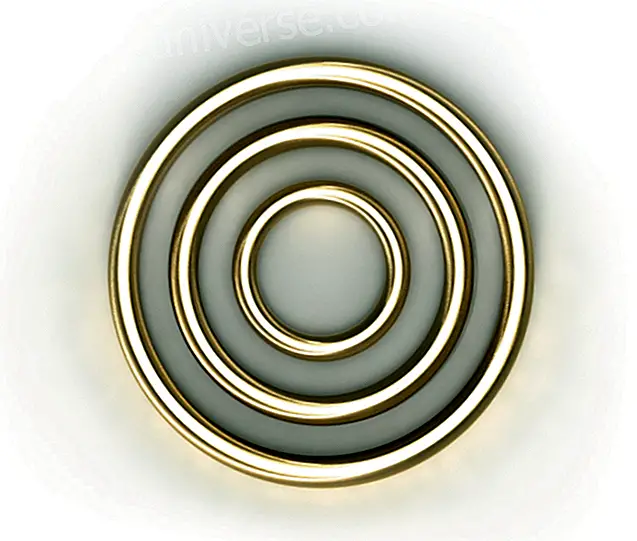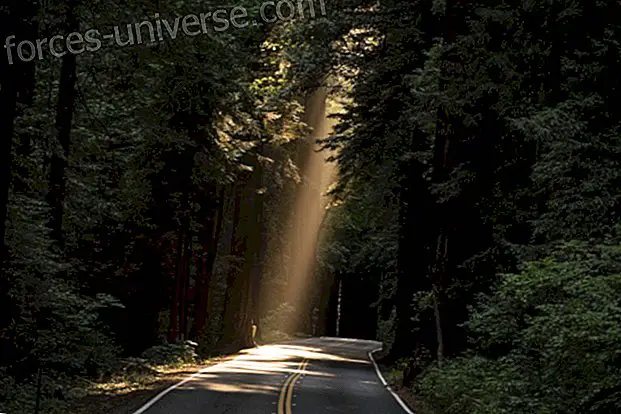
The essence of Lao-Tse's philosophy is the difficult art of ceasing to obstruct one's path, of learning to act without forcing conclusions, of living in skillful harmony with the nature process, rather than trying to violate it. For Lao-Tse, Taoism is the philosophical equivalent of jujitsu or judo, which means " path of softness ." It is based on the principle of Tao, which can be translated as "Nature's Way." But in the Chinese language the word that we translate as "nature" has a special meaning of which there is no equivalent in our language. Translated literally means " by itself ", because the Chinese believe that nature works and moves by itself without having to be driven, stimulated or controlled by conscious effort. Your heart beats " by itself ", and if you give it a chance, your mind can function "by itself", although most of us are too afraid to try the experiment.
Apart from this, Lao-Tse didn't really say much more about the meaning of Tao. The Way of Nature, the Way of happening by itself, or, if you prefer, the very process of life, was something that Lao-Tse was too wise to define. Since trying to say something definitive about Tao is like trying to eat your own mouth: you can't get out of it and chew it. In other words: you can chew everything but your mouth. Similarly, all you can define or imagine, all you can understand or desire is not the Tao. We cannot know it or experience it or feel it for the simple reason that it is the entire substance of knowledge, of emotion and of sensation, of life and of existence. It is too close to be seen and it is too obvious to be noticed or understood. He may say something that sounds totally ridiculous, but it is more us than we ourselves are, more you than you, more me than me.
Expressed more clearly, perhaps it is the you who develops your nervous system, rather than the you who uses the nerves to decide, think and act. This will work for the moment, even if it is not entirely correct. If I try to say it more clearly, the opposite will happen, which will get even more complicated. Now, I think that almost all humans make the same kind of distinction between the self that decides and acts and the subconscious self that governs the heart, glands and nerves. Thus, words such as self-control and self-consciousness suggest that our being is divided into two parts, the knower and the known, the thinker and the thoughts. To the extent that we experience this division, we will always be trying to control, understand and dominate our subconscious self with our conscious and premeditated self. But according to Lao-Tse's philosophy, this is in its literal sense to be completely blocked, to live in a desperate condition of extremely frustrating self-strangulation, which causes us to collapse on our feet permanently obstructing the path, which, of course, does not It is the Tao, the Way of Nature. That is why our main problem in life is ourselves; that is why we live tormented with the anxiety of self-protection and self-control; That is why we are so confused that we have to create laws that regulate our behavior, hire police officers to keep us in order and equip the armies with explosives to prevent us from blowing ourselves up. In the most intimate sphere of personal life, the problem is the pain of trying to avoid suffering and the fear of trying not to be afraid. It is clear that anyone who realizes how enormous and absurd this situation wants to break free from it, undo its blockages, return to the simple sanity of the Tao. But it is much easier to do it than to say it: actually, saying it is very difficult. Since, according to Lao-Tse, returning, or heading towards the harmony of the Tao is, in the deepest and most radical sense, doing nothing at all. I have already said that it was much easier to do it than to say it, because from the moment you start talking or thinking about it, it becomes extremely difficult to understand and it is very easy to make innumerable misunderstandings. In the Chinese language, this special way of " doing nothing " is called wu-wei, which literally means " not doing or not fighting ." This term is perhaps a bit delicate because the Chinese word wei, do, sounds more like the English word way, that is to avoid any unnecessary confusion on such a subject
confusing, I will say wu-wei in the Japanese style: mui.
When Lao-Tse claimed that mui, doing nothing, was the secret of harmony with the Tao, he really meant this. But he meant that he must differentiate himself with great care from two other paths that, despite appearing totally different, are actually the same. At first I will call it the path of deliberate imitation. It consists in assuming that in fact we know what is the sensible and natural way of living, the one that embodies laws and principles, techniques and ideals, and then tries, through a deliberate effort to imitate, to emulate it. This leads to all kinds of contradictions, with which we are so familiar, such as that of the individual who protests or scolds himself for not doing what has been proposed.
I will call the second path, opposite in appearance, the path of deliberate relaxation, or the path of " to hell with everything ." It is about trying not to control yourself, to try to relax your mind and allow you to think what you want, accepting yourself without making the least effort to change. All this leads to a wide, tangled and obvious confusion, or a kind of compulsive stillness, or even sometimes an equally compulsive psychological diarrhea.
Both roads are far from the real mui, from not doing deep and radical. What makes them similar is that, through their different forms, both paths have an outcome in mind. Both want to get something, one wants, and the other does not want to reach a goal. The goal in question is a kind of image, a mental representation, a vague sensation, or an ideal, of a state similar to Tao, in harmony with the Way of Nature.
But it was precisely in relation to this kind of notions and ideals that Lao-Tse said: "Abandon knowledge, reject wisdom, and people will benefit a hundredfold with it ." He was referring to the supposed knowledge of the ideal way of life. As I said at the beginning, there is no way to know what Tao is. If it is not possible to define the Tao, we certainly cannot define what it is to be in harmony with it. We simply have no idea what the goal should be. If, then, we act or refrain from acting with a purpose in the mind, this purpose is not the Tao. Hence we can say that muí is not the search for any result. Naturally, this does not mean that a Taoist sits at the table without waiting to eat, or get on a bus without wishing to go anywhere in particular. I am talking about purposes in the moral and spiritual realm, about a kind of things like kindness, peace of mind, good sense, happiness, personality, courage, and so on.
So is it possible to stop looking for results? Without a doubt, the question itself implies that I still have a purpose in my mind, even if it is the state of not wanting to look for results. Therefore, it seems that I cannot do anything, that I am simply unable to think or act without a purpose in mind. Even if I do it or not, it is the same: I am still looking for a result in a compulsive and useless way. That is, I find myself locked in a teleological trap. I must go after a purpose. I could almost say that I am the purpose.
Now, this is an extremely important discovery, since it means that I have discovered what I am, what my ego really is: a mechanism that seeks a result. Such a mechanism is a useful gadget when the purpose in question is things like food or a shelter for the organism. But when the results that the mechanism seeks are not external objects but states in themselves, such as happiness, the mechanism is blocked. Try using your own resources. Work intentionally, as you should, but without any purpose. He is looking for results in terms of themselves. You want to get results from the search results process. This produces an extremely confusing and useless blocking reaction in the mechanism. However, therein lies the only possibility. Perceive the trap of the vicious circle in which one is. See the full uselessness and intrinsic contradiction of your position. See that absolutely nothing can be done to get out of it. And this realization of I can't do anything is precisely very much. Mysteriously, nothing has been done.
At that moment a sudden change arises in the center of gravity of our entire personality. You simply discover yourself out of the trap, outside the search-for-a-result mechanism, which now appears as a kind of object with all its purposes without purpose. You see yourself as a creature in search of a purpose, but you realize that the existence of that creature has no purpose. Apart from your own preservation, in relation to everything else you are surprisingly useful. Your goal is to preserve and perpetuate yourself, but in the broad context of the universe there is no reason or purpose for this goal. Before this I would have depressed you. Now, you don't even care. Well, as I said, the center of gravity has changed and you no longer feel identified with this absurd mechanism of a purposeless purpose.
In the words of Lao-Tse: The universe is imperishable . The reason he is imperishable is that he does not live for himself. Therefore, it endures. Thus, the wise, standing behind him, is in front; by not identifying with his person, he preserves his person. Isn't it because he doesn't live for himself because of what he does himself? . In other words, when the change has taken place, when it is discovered outside itself, outside the teleological trap, the trap loses effect, the mechanism that seeks results is straightened and is no longer sought Nor does he affirm himself.
But, remember, all this happens very much, another good translation of which could be in any way, which is different from in some way . There is no procedure, method or technique that you or I can use to live in harmony with the Tao, the Way of Nature, because in some way each method It implies a goal. And making Tao a goal is like pointing an arrow against itself. Once immersed in the confusing state of the arrow that tries to shoot itself, the self that tries to change itself, we can do nothing to stop it. As long as we think or feel that we may be able to stop it, that there is some way, violent or subtle, difficult, if disinterested, the contradiction will continue or even go. to worst. We have to see that there is no way. Once we reach the state in which we realize that we cannot find any path, no result to be achieved, the vicious circle breaks down. Ouroboros, the snake that bites its tail, has turned around and has become aware, and knows, at least, that the tail is the other end of its head.
We fall into these circles because of ignorance, of the unconsciousness of the nature of our minds, of our mental processes, of ourselves. And the antidote to ignorance is not action, but knowledge, not what to do, but what we know. But here, again, the necessary knowledge does not seem to be, at first glance, something too promising or hopeful. Since the only possible knowledge in relation to this area is negative knowledge, knowing the trap, our impotent captivity of a useless search.
Positive knowledge, of the Tao, of God or of eternal Reality, implies an immediate and momentary experience. It can never be expressed in words, and any attempt to do so simply becomes another aspect of the trap. I know, we don't like to hear that we are locked in a trap, that we can't do anything to get out of it; and we still like to see that it is a living experience. But there is no other way to get rid of it. A proverb says that the extreme situations of man are the opportunities of God. We will only be able to free ourselves when we have known the real limit of our situation and discover that any struggle for spiritual ideals is completely useless, since the very fact of seeking them away them. But why should it surprise us? Hasn't it been said again and again that we must die to be reborn again, that the sky is always on the other side of the Valley of Darkness, a valley of which physical death is simply a symbol, and in which the helpless corpse, tied hand and foot in his tight shroud, is it simply a figure of death in which we live as long as we continue to confuse it with life? ...
And from here, where are we going? To nowhere. We have reached an end. But this is the end of the night.

SOURCE: “ Become what you are ” by Allan Watt






